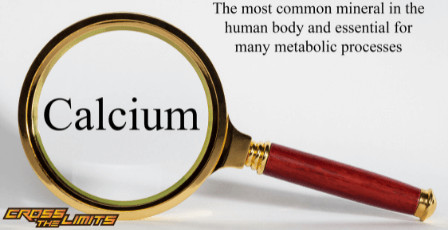If there is a lack of Ca in the diet, it is unfortunately associated with memory deterioration and neurological disorders. Protein is the basic building block for muscles, while bones are formed mainly by calcium, giving them hardness and strength. Optimal calcium concentration in the bloodstream translates into improved sleep, well-being and healthy teeth. Other benefits include faster healing of wounds and entering a relaxed state, and smoothly functioning muscles (including the heart muscle). In addition, calcium is an essential activator of many enzymes and affects the secretion of hormones. In children, deficiencies of this element result in rickets, dental caries, weakness, headaches, or painful leg muscle cramps. Calcium also increases the assimilability of vitamin B12, speeds up recovery, and reduces inflammation.
How much calcium does the body need daily?
It is assumed that an adult needs 1300 mg of calcium per day. Larger doses should be taken by children between the ages of nine and eighteen and women over fifty. For children up to the age of six months, an intake of 200 mg per day is sufficient. After one year, children already need 700 mg of calcium, and between the ages of four and eight, it is necessary to provide the body with 1000 mg of Ca daily. However, these are approximate doses because each body has a slightly different need for calcium, and it changes, which is influenced by many factors. For example, it increases up to 2000 mg per day in pregnant women. If the diet cannot meet the demand for calcium, it is worth considering supplementation with this element. When choosing a preparation, calcium ions’ content and form should be taken into account. The best are dietary supplements containing organic chelates due to up to 80% assimilability. Vitamin D and K2 should also be taken concurrently.
What foods contain calcium?
If someone wonders how much calcium is in milk, they will be shocked because there is not much of it. There are better sources of this element, both plant and animal. One hundred grams of cow’s milk contains about 120 mg of calcium; there is a little more in goat’s milk. The exact amount of tofu contains 200 mg of Ca. More calcium can be found in fish, such as sardines in tomatoes (250 mg / 100g). Poppy seeds contain a considerable amount of calcium and 1266 mg in a 100-gram portion. There is also a lot of it in soybeans, parsley, white beans, sesame seeds, almonds, sunflower seeds, pistachios and hazelnuts. Chard, chives, spinach are also good sources of calcium: all these vegetables provide about 100 mg Caper 100 g. For example, there is almost 160 mg of calcium / 100g in kale. Fruits also contain this element; there is a lot of it in dried figs (203 mg / 100 g), apricots and raisins. Cereal products also contain calcium, especially wheat bran and oatmeal.
What affects the absorption of calcium?
It is possible to eat many foods rich in calcium and still have low concentrations of this element in the body. This is due to individual problems with absorption, which many factors may cause. For example, suppose you want to increase the absorption of Ca. In that case, you should also supplement the level of vitamin D. Lactose, lysine, arginine, magnesium, and the acid reaction of food have a similar effect: thanks to the calcium is absorbed much better. Magnesium should also be supplemented because calcium will not be absorbed well without it. However, it is essential to maintain the correct ratio between the two elements. The optimal ratio of calcium to magnesium is 2:1.
Phytic acid – found in cereals and legumes, oxalic acid in black tea and spinach, dietary fibre, coffee, alcohol, and carbonated beverages- is responsible for lowering Ca’s absorption. If too much fat and zoonotic protein are consumed, there are also problems with calcium absorption. Vitamin K2 has a significant impact on Ca action. When it is deficient, calcium begins to build up in the walls of the arteries and form atherosclerotic plaques. In addition, it is vitamin K2 responsible for making calcium build up in the bones. Many medications also contribute to calcium absorption problems; antibiotics are an example.






